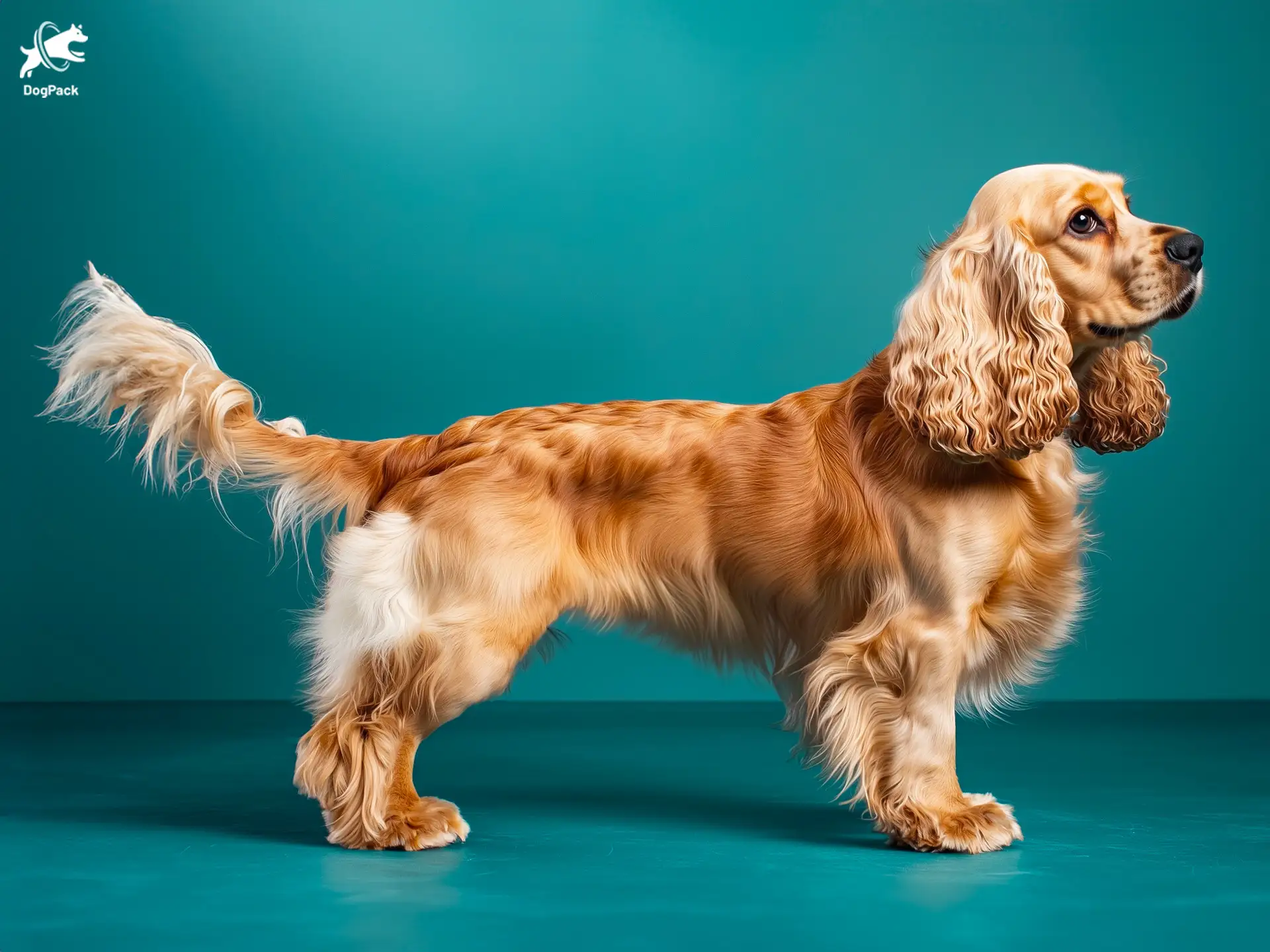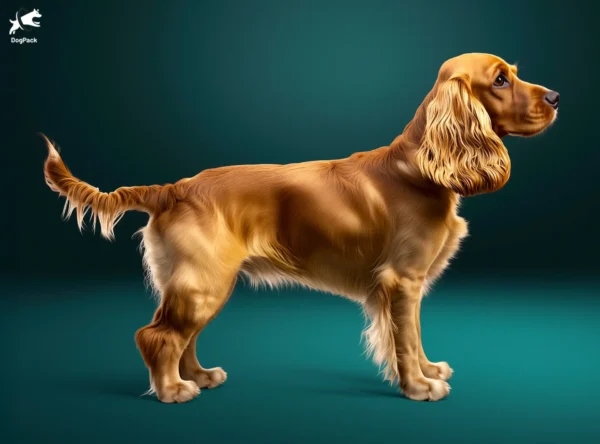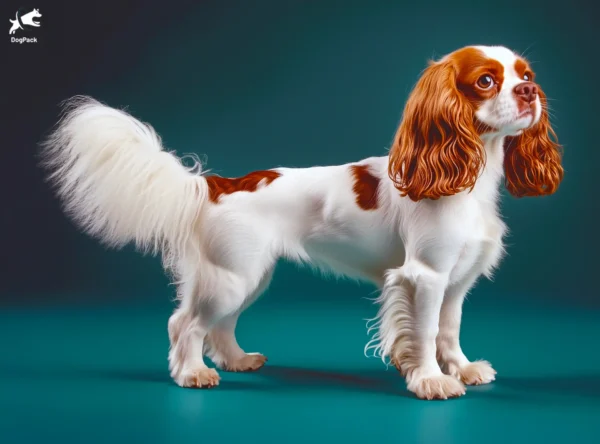American Cocker Spaniel Dog Breed Info & Overview
With their silky coats and expressive eyes, American Cocker Spaniels have a way of capturing hearts instantly. Originally bred for hunting, they’ve transitioned into beloved family companions known for their friendly and gentle nature. Their compact size and affectionate personality make them adaptable to various living situations, from apartments to suburban homes.
Characteristics
Pictures
Breed History
The American Cocker Spaniel traces its roots back to the English Cocker Spaniel, brought to the United States in the late 19th century. Breeders in America began to develop a smaller dog with a more refined head and a luxurious coat, differentiating it from its English counterpart. By the 1940s, the American Kennel Club recognized the American Cocker Spaniel as a distinct breed.
Originally bred for hunting small game like woodcock—hence the name “Cocker”—these dogs excelled in flushing and retrieving. Their keen sense of smell and compact size made them ideal for navigating dense underbrush. Over time, their friendly disposition and charming looks shifted their primary role from hunting companions to beloved family pets.
Today, the American Cocker Spaniel holds a special place in many households across the country. They gained immense popularity in the mid-20th century, even becoming the number one breed registered with the AKC for several years. Their starring role in Disney’s Lady and the Tramp further cemented their status as an iconic American breed.
Temperament, Personality
American Cocker Spaniels are known for their cheerful and affectionate nature. They thrive on human companionship and are happiest when included in family activities. Their gentle demeanor makes them excellent companions for children, often forming strong bonds and enjoying playtime and cuddles alike.
With strangers, they are typically friendly and welcoming, though some may be slightly reserved until properly introduced. Early socialization is important to ensure they grow into well-rounded adults. Their eagerness to please and sensitive disposition mean they respond best to positive reinforcement during training.
These spaniels generally get along well with other pets, including dogs and cats, especially when raised together. Their hunting instincts are mild, but they may occasionally chase small animals outdoors. Overall, their adaptable and amiable personality makes them a delightful addition to various households.
Physical Characteristics
The American Cocker Spaniel is the smallest member of the Sporting Group, standing about 14 to 15 inches tall at the shoulder. They have a sturdy, compact build that is both elegant and athletic. Their head features a chiseled appearance with long, lush ears that hang close to the head, framing their expressive, dark eyes.
Their coat is one of their most distinguishing features, characterized by its silky texture and feathering on the ears, chest, abdomen, and legs. Coat colors vary widely, including black, buff, red, and parti-color combinations. Regular grooming is essential to maintain the beauty and health of their luxurious coat.
Their tails are typically docked in the United States, though this practice is becoming less common. The overall appearance of the American Cocker Spaniel exudes a balance of refinement and sturdiness, reflecting their heritage as both a capable sporting dog and a charming companion.
Health Issues
American Cocker Spaniels are generally healthy dogs but are predisposed to certain genetic health issues. Common concerns include ear infections due to their long, pendulous ears that can trap moisture and debris. Regular ear cleaning is essential to prevent infections and maintain ear health.
Eye problems are also prevalent in the breed, such as cataracts, glaucoma, and progressive retinal atrophy, which can lead to vision loss. Routine veterinary eye examinations are recommended to catch any issues early. Some individuals may develop hip dysplasia, a joint condition that can cause discomfort and mobility issues.
Autoimmune diseases like immune-mediated hemolytic anemia can occur, though they are less common. Regular veterinary check-ups, a balanced diet, and maintaining a healthy weight can contribute to the overall well-being of the American Cocker Spaniel. Responsible breeders often screen for hereditary conditions to minimize health risks.
Grooming Needs
Maintaining the American Cocker Spaniel’s beautiful coat requires commitment. Their long, silky hair can mat and tangle if not brushed regularly. Daily brushing is ideal to keep the coat in top condition and to reduce shedding around the home.
Professional grooming every 4 to 6 weeks is often recommended, which includes trimming the coat, cleaning the ears, and clipping the nails. Some owners opt for a shorter “puppy cut” to reduce grooming demands while still keeping their dog comfortable and stylish.
Attention to their ears is crucial due to their susceptibility to infections. Regularly checking and gently cleaning the ears can prevent problems. Dental hygiene should not be overlooked; brushing their teeth several times a week can help prevent periodontal disease.
Exercise Requirements
While not as high-energy as some sporting breeds, American Cocker Spaniels still require regular exercise to stay healthy and happy. Daily walks of 30 to 60 minutes are beneficial, providing both physical activity and mental stimulation.
They enjoy playtime in a securely fenced yard, games of fetch, or interactive toys that engage their natural instincts. Participating in dog sports like agility, obedience, or tracking can also be rewarding activities that strengthen the bond between dog and owner.
Despite their adaptability to apartment living, they shouldn’t be couch potatoes. Regular exercise helps prevent obesity and related health issues. Keeping them mentally stimulated also reduces the likelihood of developing behavioral problems due to boredom.
Training Tips
American Cocker Spaniels are intelligent and eager to please, making them generally responsive to training. However, their sensitive nature means they respond best to positive reinforcement methods such as treats, praise, and play.
Consistency and patience are key. Harsh corrections can cause them to become fearful or resistant. Early socialization and puppy training classes are highly recommended to develop good manners and confidence around people and other animals.
Using short, fun training sessions helps keep them engaged. They can excel in obedience and agility competitions with the right guidance. Remember to keep training upbeat and rewarding to bring out the best in your American Cocker Spaniel.
Nutrition, Diet
Feeding your American Cocker Spaniel a high-quality dog food appropriate for their age (puppy, adult, or senior) is essential for their health. Portion control is important, as they can be prone to weight gain if overfed.
Typically, they require about 1.5 to 2.5 cups of dry food per day, divided into two meals. The exact amount depends on factors like age, activity level, and metabolism. Consulting with your veterinarian can help tailor a diet plan suited to your dog’s specific needs.
Diets rich in omega-3 fatty acids can promote healthy skin and a shiny coat, beneficial for this breed’s luxurious hair. Avoid giving excessive treats or table scraps, as this can contribute to obesity and digestive issues. Always ensure fresh water is available.
Adoption, Breeders
When considering adding an American Cocker Spaniel to your family, it’s important to choose a reputable breeder or consider adoption. Responsible breeders will provide health clearances and allow you to meet the puppy’s parents to assess temperament and health.
Adoption is a wonderful option, with many breed-specific rescue organizations dedicated to rehoming Cocker Spaniels. Organizations like the American Spaniel Club and Cocker Spaniel Rescue can be excellent resources.
Avoid purchasing from puppy mills or pet stores where breeding practices are often questionable. Taking the time to find a responsible source ensures a healthier, happier companion and supports ethical breeding practices.
Family Pet?
American Cocker Spaniels make excellent family pets due to their affectionate and gentle nature. They typically get along well with children, enjoying playtime and being part of family activities. Their size makes them suitable for families with kids of various ages.
They are social dogs that thrive on companionship, so they do best in homes where they are not left alone for extended periods. Their adaptability allows them to fit into various household dynamics, whether in a bustling family or a quieter environment.
Supervision with very young children is always recommended to ensure mutual respect between dog and child. Teaching children how to interact appropriately with pets can foster a strong bond and prevent accidental rough handling.
Right For You?
Deciding if an American Cocker Spaniel is right for you involves considering your lifestyle and ability to meet their needs. They require regular grooming and moderate exercise, so time and commitment are necessary to keep them healthy and happy.
They are well-suited for individuals or families who can provide affection and include them in daily activities. If you value a loving companion that enjoys being close and participating in family life, this breed could be a great match.
However, if you’re frequently away from home or unable to commit to their grooming requirements, you might consider a breed with lower maintenance needs. Assessing your situation honestly will help ensure a rewarding relationship for both you and your dog.
Conclusion
With their endearing personalities and charming looks, the American Cocker Spaniel offers a delightful blend of companionship and elegance. They thrive in loving environments where they can be an active part of the family. If you’re prepared to invest time in grooming and can offer the affection they crave, this breed can be a wonderful addition to your home.
FAQs
-
Are American Cocker Spaniels good with other pets?
Yes, American Cocker Spaniels generally get along well with other pets, especially if socialized early. They are friendly and adaptable, making them good companions for other dogs and even cats. Proper introductions and supervision are key to harmonious relationships.
-
How much do American Cocker Spaniels shed?
American Cocker Spaniels shed moderately throughout the year. Regular grooming and brushing can help manage shedding by removing loose hairs. Their coat requires maintenance to prevent matting, which can also reduce the amount of hair left around your home.
-
Do American Cocker Spaniels bark a lot?
They may bark to alert their owners of visitors or unusual sounds, but excessive barking is not typical if they are properly trained and socialized. Providing mental stimulation and addressing any anxiety can help minimize unwanted barking behaviors.
-
Are American Cocker Spaniels hypoallergenic?
No, American Cocker Spaniels are not considered hypoallergenic. They have a double coat that sheds, which can trigger allergies in sensitive individuals. Regular grooming may reduce allergens but won’t eliminate them entirely for those with severe allergies.
-
What activities do American Cocker Spaniels enjoy?
American Cocker Spaniels enjoy a variety of activities, including walks, playtime, and participating in dog sports like agility or obedience. They appreciate mental challenges and games that engage their senses, making them versatile companions for active owners.
Breed Ratings
Intelligent and eager to please, they learn quickly with positive reinforcement and consistent training methods.
Playful and fun-loving, they enjoy games and interactive toys, making them great companions for families.
The American Cocker Spaniel has moderate energy levels, enjoying daily walks and play but also content to relax at home.
Moderate shedding requires regular brushing to manage loose hair and maintain a healthy coat.
While originally hunting dogs, their prey drive is relatively low, but they may chase small animals occasionally.
High grooming needs include regular brushing and professional grooming to keep their coat in top condition.
Responsive to training, they do well with positive reinforcement and consistency, excelling in obedience tasks.
They prefer companionship and may experience separation anxiety if left alone for long periods.
Moderate barkers, they may alert you to visitors but are not typically excessive unless bored or anxious.
Minimal drooling, making them relatively tidy around the home compared to some other breeds.
Highly social with other dogs, especially when socialized early, they enjoy canine company.
Generally healthy but prone to specific genetic issues; regular vet care and responsible breeding are important.













